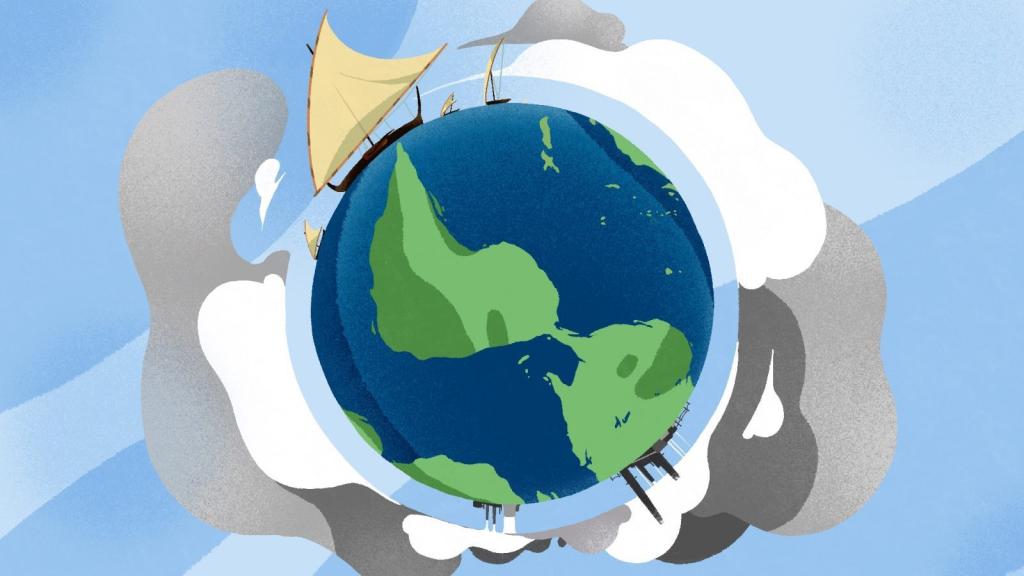Moñeka De Oro grew up hearing stories of her ancestors navigating the Pacific Ocean, hopping from island to island using only the stars, the currents, and the wind to guide them. She was 31 the first time she embarked on an inter-island voyage aboard a vaka motus, a traditional double-hull sailing canoe. Under luminous arrays of stars, she marveled at turtles and dolphins covered with bioluminescence riding the same waves propelling her vessel from Rota to Guam. “It was such a beautiful experience,” says De Oro, who is Chamorro, the native people of the Mariana Islands. “It just very much felt like the ancestors were with you.”
Pacific Islanders have in the centuries since colonization lived largely insular lives, separated from the rest of the world by a vast ocean. That has made them particularly attune to the land and sea, mindful of their impact and resilient to the storms that climate change is making increasingly violent and frequent. For generations, De Oro’s family has composted and recycled, fished responsibly, and used just enough energy to power their home. Although colonization has erased some Chamorro ancestral ways and wisdom, ... Read more

